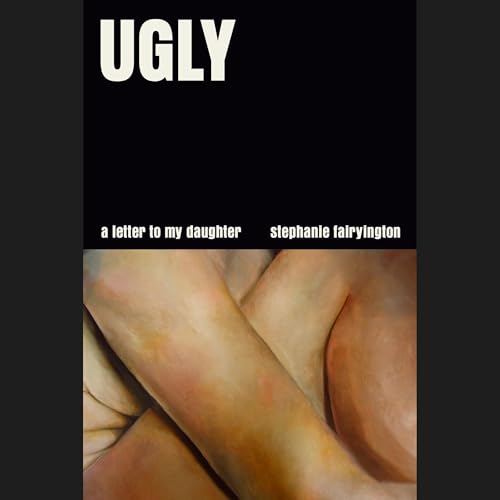
Ugly
A Letter to My Daughter
カートのアイテムが多すぎます
カートに追加できませんでした。
ウィッシュリストに追加できませんでした。
ほしい物リストの削除に失敗しました。
ポッドキャストのフォローに失敗しました
ポッドキャストのフォロー解除に失敗しました
聴き放題対象外タイトルです。プレミアム会員登録で、非会員価格の30%OFFで予約注文できます。聴けるのは配信日からとなります。
¥2,500で今すぐ予約注文する
-
ナレーター:
このコンテンツについて
A tender, moving, and insightful account of queer motherhood and an interrogation of life on the margins of American culture as a self-described “ugly” woman
Ugly is a word with fangs that can kill a woman’s self-esteem in one bite. Edicts about how women should look, behave, and think are the brutal forge through which they are made — not born. And to defy the pretty imperative is to become invisible. It can be a hard thing to admit to yourself, let alone to your child— to say the words, “I am ugly,” or “I am seen as ugly.” But early on in her motherhood journey, watching her young daughter begin to wrestle with beauty standards, Stephanie Fairyington felt compelled to face her own demons, to unpack her own ugly self-perception, one that she could trace to her own childhood, in order to conquer this seemingly immoveable frontier, far too taboo even among women to broach—the ways in which women’s lives are unfairly contoured by the nature of their looks.
The multiple iterations of ugliness that Fairyington saw in her young self—her physical appearance, her unavoidably obvious queerness, and her dissonant gender expression—are not present in her beautiful and traditionally feminine daughter. But Fairyington’s old feelings of inadequacy take on new meaning as she confronts fresh insecurities around her role as the non-biological mother in her relationship, exacerbating wounds from a lifetime of being treated differently: from the poverty of her genetic inheritance to questions about her parentage to doubts about the legitimacy of her family.
Interlacing cultural history and analysis with memoir, Ugly is a probing investigation into cultural norms and the formation of our aesthetic sense of self. Fairyington contrasts her so-called ugliness with her daughter’s attraction and adherence to beauty ideals, a tender and tenuous condition that by age seven she was already walking a tightrope to maintain. By sharing the history of her troubled self-image, Fairyington invites us to go rogue, to invent a new language and logic to overthrow all the ways that women have been cultivated to hate themselves.


